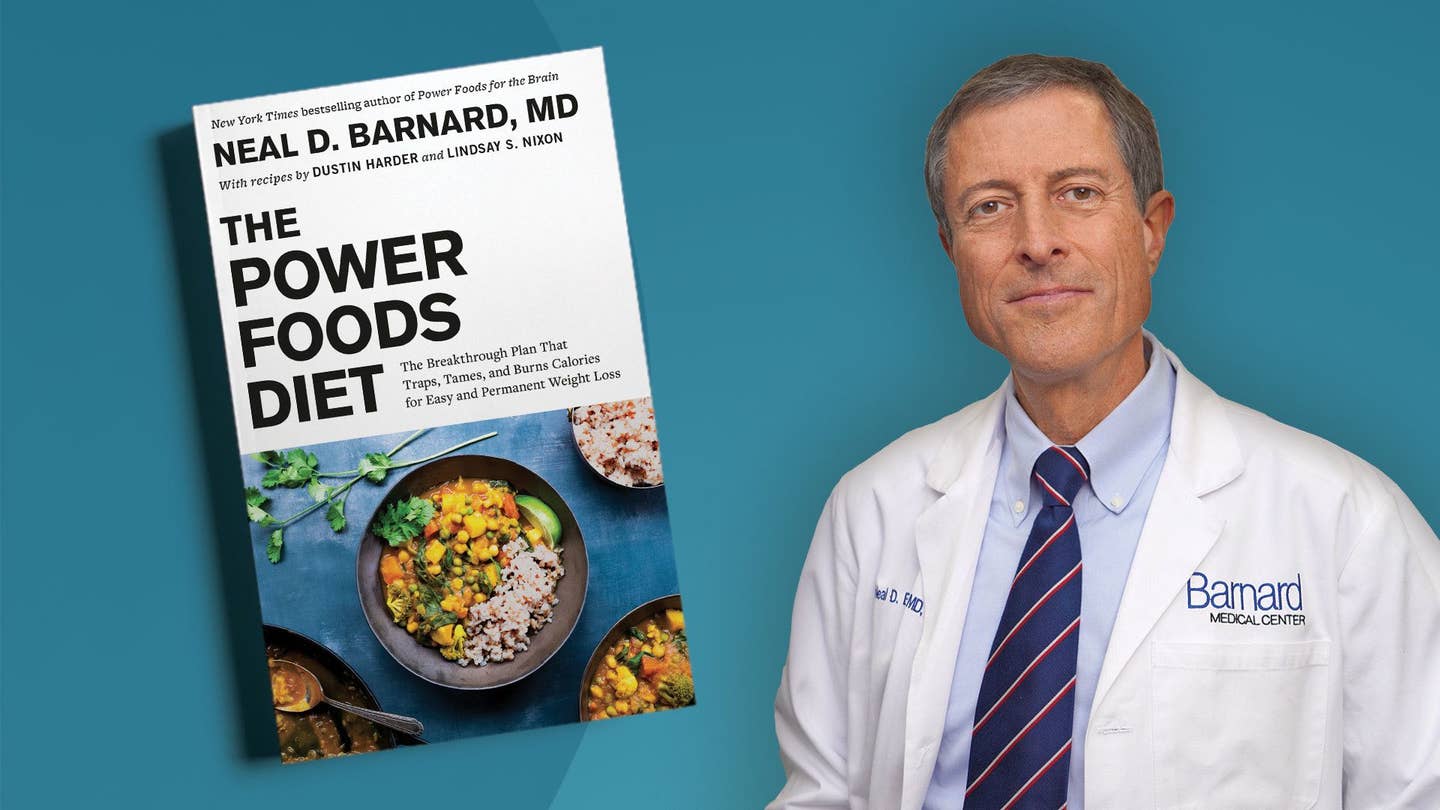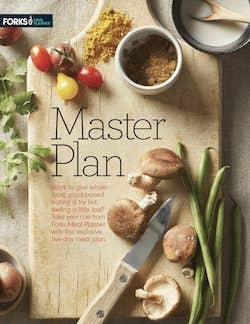I am plant-based. Essentially, this means I don’t eat anything with a face or a mother. Animals find this agreeable. I’m also an ultra-endurance athlete. Essentially, this means I don’t go all that fast, but I can go all day. My wife finds this agreeable.
Conventional wisdom is that “vegan” and “athlete” simply don’t get along — let’s call it irreconcilable differences. I’m here to say that is utter nonsense.
“But where do you get your protein?”
Not a day goes by that I am not asked this question. If I had a dollar for every time this came up, everyone in my family would be driving a Tesla.
Most vegans bristle at the question. Armed for battle, they assume a defensive position and hunker down for the inevitable, age-old omnivore versus herbivore fight that always ensues. Because belief systems around food are entrenched — they’re right up there with religion and politics — emotions run high. Before you can blink, arrows are flying in both directions. Conversation becomes debate. And debate all too often devolves into mudslinging … an endless, hopelessly unproductive merry-go-round that leaves each side further entrenched in their preferred dogma and never leads anywhere constructive.
I hate that — it’s why a large portion of the general public finds vegans so unpalatable. Instead, I welcome the question. If someone is asking, I presume a genuine interest — simply an opportunity for a productive dialog. So let’s try to have that dialog. The productive kind. My perspective on the elephant in the room … nothing more, nothing less.
We live in a society in which we have been willfully misled to believe that meat and dairy products are the sole source of dietary protein worthy of merit. Without copious amounts of animal protein, it’s impossible to be healthy, let alone perform as an athlete. The message is everywhere, from a recent (and wildly successful I might add) high-profile dairy lobby ad campaign pushing chocolate milk as the ultimate athletic recovery beverage (diabolically genius), to compelling food labels, to a dizzying array of fitness expert testimonials. Protein, protein, protein — generally reinforced with the adage that more is better.
Whether you are a professional athlete or a couch potato, this hardened notion is so deeply ingrained into our collective belief system that to challenge its propriety is nothing short of heresy. But through direct experience, I have come to believe that this pervasive notion is at best misleading, if not altogether utterly false … fueled by a well-funded campaign of disinformation perpetuated by powerful and well-funded Big Food, Big Ag, and industrial animal agriculture interests that have spent countless marketing dollars to convince society that we absolutely need these products in order to continue breathing air in and out of our lungs.
The animal protein push is not only based on lies, it’s killing us, luring us to feast on a rotunda of factory-farmed, hormone- and pesticide-laden, low-fiber foods extremely high in saturated fat. Eating this way, I remain convinced (despite the current populist fervor over high-fat, low-carb diets), is indeed a contributing factor to our epidemic of heart disease (the world’s #1 killer) and many other lifestyle-induced infirmities that have rendered our prosperous nation one of the sickest societies on Earth.
Indeed, protein is an essential nutrient, absolutely critical not just in building and repairing muscle tissue, but in the maintenance of a wide array of important bodily functions. But does it matter if our protein comes from plants rather than animals? And how much do we actually need?
Proteins consist of twenty different amino acids, eleven of which can be synthesized naturally by our bodies. The remaining nine — what we call essential amino acids — must be ingested from the foods we eat. So technically, our bodies require certain amino acids, not protein per se. But these nine essential amino acids are hardly the exclusive domain of the animal kingdom. In fact, they’re originally synthesized by plants and are found in meat and dairy products only because these animals have eaten plants.
Despite the “butter is back” hysteria that recently graced the cover of TIME magazine, the best medical science establishes beyond reproach that both casein and whey contribute materially to degenerative disease. A family of proteins found in milk, casein has been linked to the onset of a variety of diseases, including cancer. And whey is nothing more than a highly processed, low-grade discard of cheese production -- another diabolical stroke of genius courtesy of the dairy industry that created a zillion-dollar business out of stuff previously tossed in the garbage.
On a personal anecdotal level, adopting a plant-based lifestyle eight years ago repaired my health wholesale and revitalized my middle-aged self to reengage fitness in a new way. As hard as it may be for some to believe, the truth is that my athletic accomplishments were achieved not in spite of my dietary shift but rather as direct result of adopting this new way of eating and living.
I’m not alone in this belief:
- Just ask Oakland Raiders defensive tackle David Carter.
- Watch this video of strongman Patrik Baboumian breaking a world record for most weight carried by a human being when he hauled over 1200 pounds — roughly the weight of a Smart Car — 10 meters across a stage in Toronto last year.
- Witness two-time World Champion Freerunner and parkour artist Timothy Shieff hopscotching off rooftops like a video game character.
- And be amazed by this video of plant-based strength athlete freak-of-nature Frank Medrano doing things with his body you didn’t think possible.
- Then there are MMA/UFC fighters like Mac Danzig, Jake Shields, and James Wilks.
- And multisport athletes like Brendan Brazier, Rip Esselstyn, and Ben Bostrom — a world-renowned motorcycle, mountain bike, and road bike athlete & victorious member of this year’s Race Across America 4-man relay team.
- Also professional triathlete & Ultraman World Champion Hillary Biscay who just raced her 66th Ironman.
- Check out ultramarathoners extraordinaire like Scott Jurek, his fruitarian compadre Michael Arnstein, and my old friend Jason Lester, with whom I completed 5 Ironman distance triathlons on 5 Hawaiian islands in under a week. Jason has since criss-crossed the USA on two feet and is currently prepping for a 100-day run across China.
- Then of course there is Timothy Bradley, Jr., who took down Manny Pacquiao last year (well kind of, but you get my drift).
The point is this: each of these athletes, and countless others, will all tell you the same thing: rather than steak, milk, eggs, and whey supplements, opt instead to eat lower on the food chain and source your protein needs from healthy plant-based sources like black, kidney, pinto, and other beans, almonds, lentils, hemp seeds, spirulina, and quinoa. Even eating less-concentrated sources of protein like potatoes, sweet potatoes, and bananas will get you exactly where you need to be.
If you ate nothing but a variety of fresh fruit, you still would never suffer a deficiency of protein (or even any particular amino acid). Short of starving yourself, it’s almost impossible. Despite the incredibly heavy tax I impose on my body, training at times upwards of 25 hours per week for ultra-endurance events, this type of regimen has fueled me for years, without any issues with respect to building lean muscle mass. In reality, I believe that eating plant-based has significantly enhanced my ability to expedite physiological recovery between workouts — the holy grail of athletic performance enhancement. In fact, I can honestly say that at age 47 I am fitter than I have ever been, even when I was a world-class-level competition swimmer at Stanford in the late 1980s.
And despite what you might have been told, I submit that more protein isn’t better. Satisfy your requirement and leave it at that. With respect to athletes, to my knowledge, no scientific study has ever shown that consumption of protein beyond the RDA-advised minimum (10 percent of daily calories) stimulates additional muscle growth or expedites physiological repair induced by exercise stress. And yet most people — the overwhelming majority of whom are predominantly sedentary — generally consume upwards of three times the amount of daily protein required to thrive.
The protein craze isn’t just an unwarranted, over-hyped red herring, it’s harmful. Not only is there evidence that excess protein intake is often stored in fat cells, it contributes to the onset of a variety of diseases, such as osteoporosis, cancer, impaired kidney function, and heart disease.
Still not convinced? Consider this: some of the fiercest animals in the world — the elephant, rhino, hippo and gorilla — are plant-powered herbivores. And nobody asks them where they get their protein. So ditch that steak and join me for a bowl of quinoa and lentils.
NOW READ:

Related News
Try Our Top-RatedMeal Planner Free

Forks Meal Planner takes the hard work out of making nutritious meals the whole family will enjoy.
SAVE $200 ON OUR ULTIMATE COURSE

Join our best-selling course at a new lower price!



